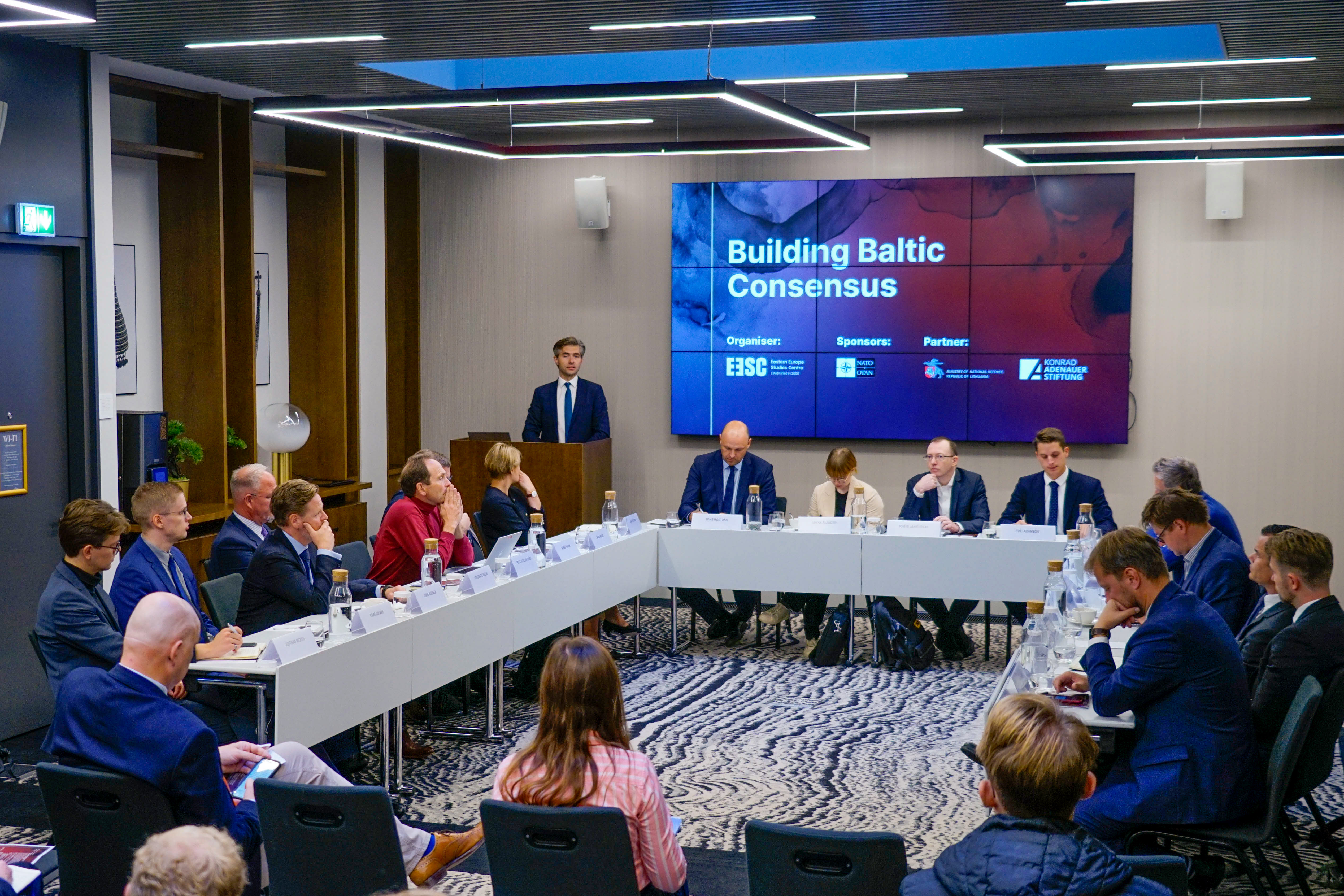The Eastern Europe Studies Centre held the first discussion of the Lithuanian Foreign Policy Outlook cycle, featuring the President of the Republic of Lithuania Gitanas Nausėda. The discussion was moderated by the EESC’s Director Linas Kojala. During the event, discussions revolved around core foreign policy trends – the dynamic of Lithuanian-Polish relations, the prospects for a democratic Belarus, Eastern Partnership and Europe’s stance regarding Russia.
When asked to comment on the condition of Lithuanian-Polish relations, the president observed that in this context, it is impossible to miss positive changes. This is indicated by the two countries’ agreement on geopolitics, relations with the Eastern Partnership countries and also their perspective on Russia.
“These are countries that find themselves close to one another and have a good understanding of one another,” the president mused, emphasising the importance of neighbourly ties. However, according to him, Lithuanian and Polish relations must be perceived in a dynamic.
In response to the EESC director’s question as to whether Poland’s disagreements with the EU on certain questions are not an obstacle to cooperating with the neighbour, the president emphasised the importance of consensus: “After all the disagreements, a compromise is reached – Poland demonstrates through its example that the EU is a union of nations that respects every country’s sovereignty.” Despite how the European Union is often a complex, polemical process and sometimes a “struggle of disagreements and a search for compromise”, the president noted that the common European identity eventually wins out.
“The motif of a unified Europe wins out when it might seem that the disagreements are insurmountable,” President Gitanas Nausėda stated.
Remembering his latest visit to Poland for the commemoration of the 230th anniversary of the May 3 Constitution, President Nausėda observed that the historical narrative claiming of this document undermining Lithuanian sovereignty is weakening – it is now believed that “the Constitution, even if it failed to save the state in the XVIII century, it built bridges into the future.” These “bridges” are especially crucial now, with Poland and Lithuania engaging with Eastern Partnership policy. A great deal of attention was dedicated to this topic as the region’s state leaders visited Warsaw and according to the president, “the idea of Eastern Partnership was heard in those days.”
The president agreed with Director Kojala’s notion that despite the “mental breakthrough” that occurred in Belarus, Lukashenko’s regime maintains its positions and controls the country and its repressive structures. President Nausėda highlighted how democratic changes in a country can demand a great deal of time, but they can be accelerated by the support of Western countries. The head of state conceded that, unfortunately, certain aspects of the EU countries’ “homework” were left incomplete, this including the fourth sanctions package against the Lukashenko regime.
“Lithuania must be a strong advocate of the Belarus question and demonstrate solidarity with its neighbouring country,” Nausėda stated. The president emphasised that across the European Union, Lithuania is viewed as “an expert in Belarus affairs” and furthermore, the questions of Astravyets Nuclear Power Plant, Belarusian-Russian relations and Eastern Partnership are dominant in the Lithuanian agenda.
Commenting on Eastern Partnership policy, President G. Nausėda compared it to the process of Lithuania’s accession to the EU but admitted that the circumstances of the Eastern countries are far more complicated – historical factors hamper state consolidation, there is a lack of public unity regarding the question of European integration.
According to Nausėda, the EU countries’ task is to show them the “green light” so that countries looking to become member state would be reassured that upon completing relevant reforms, they will be accepted into the EU. The president agreed that it is more important to “maintain strategic patience” than to change the tools that are used to implement the Eastern Partnership Policy.
To Director Kojala’s question as to whether European policy toward Russia might have become routine, President Gitanas Nausėda stated that for a breakthrough moment to occur, a watershed compromise is needed between all EU countries. Currently, the discussion is in “varying voices” and agreement is reached only in critical cases such as when reacting to the explosion that occurred in the Czech weaponry warehouse in 2014. The president admitted that he could see opportunity for dialogue with Russia, but “this country’s imperial ambitions” currently prevent it. All the EU’s sanctions were justified and applied in response to what, according to the president, “shouldn’t happen in the XXI century.”
We are glad that the discussion was covered by four of the largest Lithuanian news portals: DELFI.lt, LRT, 15min and lrytas.lt. We also wish to thank all the discussion’s viewers and those actively posing questions. You can also find a video recording of the discussion on the EESC’s Facebook page.


